As India completes second week of the 21-day nationwide lockdown, the attention is now shifting to the post lockdown scenarios. Fresh thinking is required to rebuild India in the post-corona world.
An indefinite lockdown is not possible. The lockdown has severely interrupted economic activity at the expense of job losses and livelihoods. We should be ready to deal with unexpected rise in cases of infections if the lockdown is relaxed. It would appear that the consensus is building towards the relaxation of general lockdown and replacing it with targeted containment of areas worst affected by the virus. The government is also considering increasing the frequency of testing in the population. This will generate new data which will help in defining the strategies.
Much will depend upon the extent of the spread of the virus. As on 26th February, 2020, three travel related cases (from Hubei province, China), were reported (all from Kerala). On 6 April, the government given number was 4067 confirmed cases and 109 deaths have been reported. 291 persons have been cured and discharged after recovery. Of the infected cases 76% are male and 24% female. Nearly 47% of the infected people are below 40 years of age while 19% are in the 60 and above category. Amongst those who died, 63% were of age 60 and above, 30% were between 40 and 60 years of age and 7% were below 40 years.
The coordination between the Centre and the state governments has been strengthened. The National health Mission (NHM) has already sanctioned Rs. 1100 Cr to all the States. Additional Rs. 3000 Cr were released on 6thApril. The central government is procuring N-95 masks, Ventilators and PPEs and distributing them to all states as per the need.
Further, 274 districts have been affected by COVID-19 virus in the country. Nearly 80 percent of coronavirus cases are in 62 districts. The number of active corona cases is doubling every 4.7 days. This data will be helpful in crafting the post lockdown period strategy.
The Tablighi Jamaat Markaz has emerged as the super spreader of the virus in the country. Nearly one third of the positive cases in the country have been traced to the Tablighi Jamaat gathering in New Delhi in March.
It remains to be seen whether India will face a sharp spike in the cases in the next few weeks. The focus at the moment is to overcome the shortages of protective gear, masks and other equipments needed by the health care workers and doctors to deal with the surge if it occurs.
The government is trying to get its act together. According to a press information bureau release, the Empowered Group No. 6, chaired by the NITI Aayog CEO, has had several meetings with the UN agencies, World Bank and ADB, as well as civil society organisations and industry associations to ensure that the government’s response to the Covid crisis is robust and timely.
The UN’s India office has already submitted a joint action plan to the Indian government to provide technical support in monitoring and surveillance systems, strengthening health and nutritional services, capacity building, financial resources and critical equipment support, etc.
A cross-sectoral dialogue within the private sector and start-ups has been initiated to facilitate collaboration among them to produce health equipment and PPEs. The leading industrial organisations of the country have come forward to help.
Cognizant of the enormous role of the civil society and NGOs at the time of crisis, the government has written to the various state governments asking them to facilitate the provision of health care and the delivery of services to the vulnerable sections of the society.
The Ministry of Tourism has launched a portal www.strandedinindia.com to identify, and facilitate foreign tourists who are stranded in various parts of India due to the lockdown situation.
Economic rejuvenation
Rejuvenating the country’s rather weak healthcare system should be the government’s first priority. Many things can be done. The health expenditure must be doubled, healthcare education should be extricated from the clutches of unscrupulous persons, health R&D and telemedicine should be given a big push. India should become a manufacturer of medical devices. New technologies in healthcare should be introduced. Disease surveillance systems should be strengthened. New cadres of doctors, specialists, paramedics and healthcare should be raised.
This is also the time to fix the rural economy. The unhealthy migration of millions of people from rural areas to the urban areas should be reduced by creating more demand and more jobs in the rural sectors.
Agriculture needs to be given a much higher priority than has been the case. It is important to make higher investments in soil, water, pollution, energy, irrigation infrastructure, agricultural marketing, education, and housing needs in the rural areas. Animal husbandry, fisheries, food processing, warehousing and cold store chains et cetera do need to be invested into. Private sector and civil society should be brought into the equation urgently.
It is heartening to note that the Union Minister for Food processing industry, Harsimrat Kaur Badal, held discussions with the leading industrial organisations to understand the interventions required by the government for development of Food Processing sector with “renewed vigour post lockdown”.
This is also the time to think in terms of a universal basic income system which provides Social Security to the people at the time of need. The ideas have been discussed in the Economic Survey of 2016. These need to be flushed out and implemented.
Informal sector is the backbone of employment in the country. The small and medium sector has been a neglected sector despite the fact that it generates the maximum employment. The corona crisis has hit the informal sector badly. An Indian economic model in which small and medium sector is strengthened, consolidated and linked up with the larger formal sector needs to be thought through. Their needs for credit, technology, skills, markets et cetera need to be addressed urgently.
Economic growth without environmental protection cannot be sustainable. Adequate attention should be given to check environmental degradation, mitigate CO2 emissions. Presently, there is a tension between the developmental needs and the need for environmental protection. This tension comes up time and again when large projects are undertaken. Going beyond symbolism, sustainable development should be incorporated in government’s scheme of things.
Many people noted rather pleasantly that during the lockdown days, the rivers became cleaner and blue skies were seen once again. Birds and animals returned. There is a need to focus on pollution. Indian cities are among the world’s most polluted. Lakhs of people die of pollution every year. Using the momentum generated by the coronavirus crisis, the government should come up with effective measures to check pollution. This cannot wait. Health care initiatives should be linked up with schemes to check pollution, make cities clean and save the environment.
The ambit of the Swachh Bharat programme should be enlarged to include healthcare, clean cities, and clean air and water. These activities should also be included in the MGREGA program.
Information technology mitigated the impact of the lockdown to some extent. People are working from home and remained connected with each other. Essential services were delivered at doorsteps. India was fortunate that it had a fairly well-developed ICT infrastructure although there is still considerable digital divide in the country. The problem is that India does not manufacture ICT. For instance, it does not make computer chips, routers, networking devices et cetera. All these are imported, mostly from China. Whatever indigenous production is there, it is too small and faces huge foreign competition. India needs to strengthen its electronics sector so that we manufacture ICT devices in the country. With the growing need of ICT devices and software in diverse sectors of the economy including healthcare, agriculture, the intake, education et cetera, a revamped ICT manufacturing should become priority. Cyber security sector should also be made totally indigenous.
Logistics sector also needs to be rethought. Efforts should be made to try and make deliveries of products and services at the doorsteps to the extent possible. This will generate jobs in the logistics sector and also decongest workspaces, roads and public spaces.
Education sector should focus on science, technology engineering and mathematics, which are the backbone of the new knowledge economy. Not enough attention has been paid in this area. The coronavirus crisis provides the opportunity to have a fresh thinking on how to strengthen science and technology education, skills and training, new methods of online education methodologies et cetera.
Tele-diplomacy
In the post-corona virus world, the shape of diplomacy will change. Grandiose summits and fanfare type of diplomacy will give way to more focused and productive tele-diplomacy. In the recent days the Prime Minister has had several conversations with the top leaders including President Trump, and leaders of Brazil and Spain. The point of discussion was coronavirus crisis. Trump and Modi have agreed to deploy the full strength of the India – US partnership to combat COVID-19. It has been reported that President Trump has asked the supply of chloroquine tablets from India.
In the foreign policy arena, we should focus on building regional supply chains rather than depending upon China. The needs of the neighbouring countries are similar to our own. This is the time to integrate Indian economy with the economies of the neighbouring countries. Thus, for example, India and Bangladesh can jointly build masks and ventilators. India and Bhutan can focus on high-end production of electronic items which require clean atmosphere and water. India and Nepal can think of a common agricultural policy. India, Sri Lanka and Maldives can think of joint development of marine resources. India and Myanmar, India and Thailand can take advantage of the trilateral highway and link up there rural and industrial economies.
Self-reliance for the 21st century
The crisis will pass. But, will we take advantage of the crisis to rethink our policies? We should begin with the health sector and around it we can build an integrated model of socio-economic development which will respond to the Indian needs. India is a big market. We should take advantage of that big market for ourselves. The dependence on imports should be reduced. Self-reliance, which had gone out of fashion, should come back in circulation.
At the same time, we will also have to think how we can generate the resources for the rebuilding of the economy. Sooner or later, we will have to face that challenge as well. Taxation policies may have to be restructured. How to do that should be debated.
Image Source: https://www.thehindu.com/news/cities/chennai/jwvpif/article31247159.ece/ALTERNATES/FREE_960/villivakkam-boardjpg

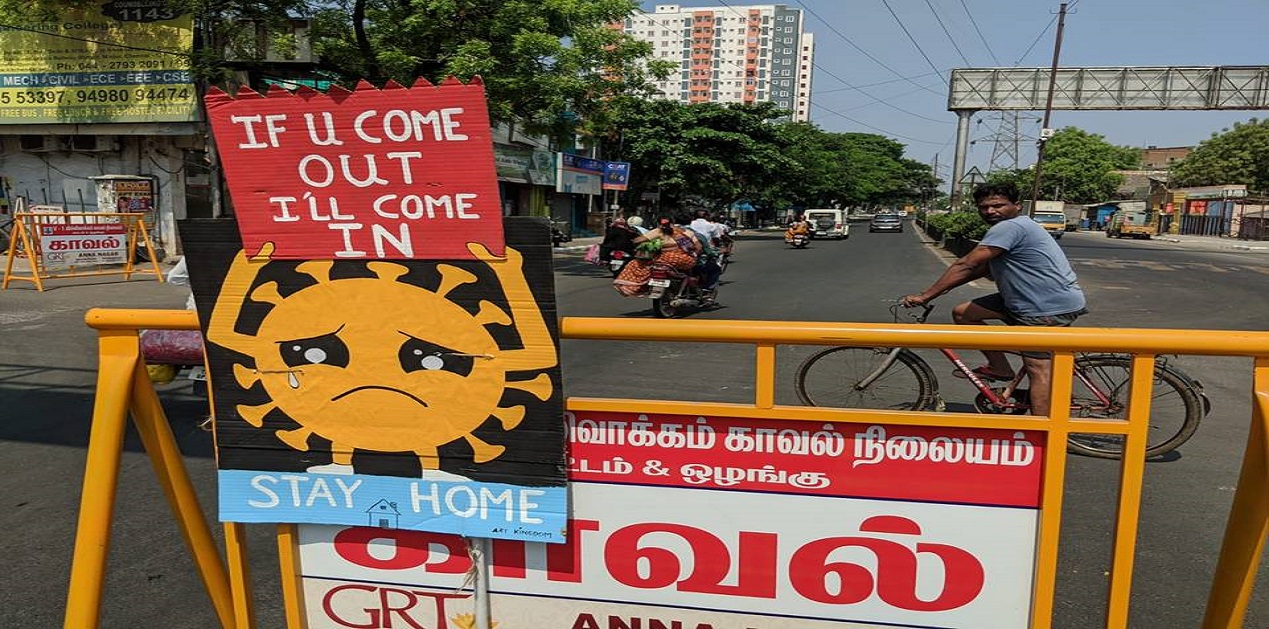
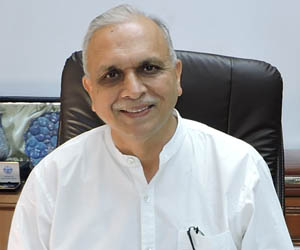


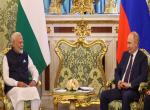


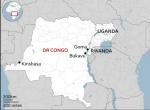
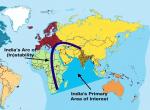

Post new comment